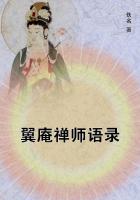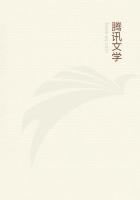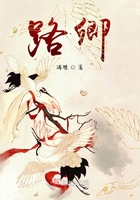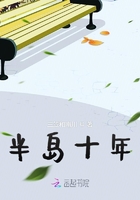Herein, as in many other points, a contrast is noticeable between him and the great Italian masters, who were so sensitive as to the esteem in which they and their poetry were held. Who could fancy Chaucer crowned with laurel, like Petrarch, or even, like Dante, speaking with proud humility of "the beautiful style that has done honour to him," while acknowledging his obligation for it to a great predecessor? Chaucer again and again disclaims all boasts of perfection, or pretensions to pre-eminence, as a poet. His Canterbury Pilgrims have in his name to disavow, like Persius, having slept on Mount Parnassus, or possessing "rhetoric" enough to describe a heroine's beauty; and he openly allows that his spirit grows dull as he grows older, and that he finds a difficulty as a translator in matching his rhymes to his French original. He acknowledges as incontestable the superiority of the poets of classical antiquity:----Little book, no writing thou envy, But subject be to all true poesy, And kiss the steps, where'er thou seest space Of Virgil, Ovid, Homer, Lucan, Stace (Statius).
But more than this. In the "House of Fame" he expressly disclaims having in his light and imperfect verse sought to pretend to "mastery" in the art poetical; and in a charmingly expressed passage of the "Prologue" to the "Legend of Good Women" he describes himself as merely following in the wake of those who have already reaped the harvest of amorous song, and have carried away the corn:--And I come after, gleaning here and there, And am full glad if I can find an ear Of any goodly word that ye have left.
Modesty of this stamp is perfectly compatible with a certain self-consciousness which is hardly ever absent from greatness, and which at all events supplies a stimulus not easily dispensed with except by sustained effort on the part of a poet. The two qualities seem naturally to combine into that self-containedness (very different from self-contentedness)which distinguishes Chaucer, and which helps to give to his writings a manliness of tone, the direct opposite of the irretentive querulousness found in so great a number of poets in all times. He cannot indeed be said to maintain an absolute reserve concerning himself and his affairs in his writings; but as he grows older, he seems to become less and less inclined to take the public into his confidence, or to speak of himself except in a pleasantly light and incidental fashion. And in the same spirit he seems, without ever folding his hands in his lap, or ceasing to be a busy man and an assiduous author, to have grown indifferent to the lack of brilliant success in life, whether as a man of letters or otherwise. So at least one seems justified in interpreting a remarkable passage in the "House of Fame," the poem in which perhaps Chaucer allows us to see more deeply into his mind than in any other. After surveying the various company of those who had come as suitors for the favours of Fame, he tells us how it seemed to him (in his long December dream) that some one spoke to him in a kindly way, And saide: "Friend, what is thy name?
Art thou come hither to have fame?"
"Nay, forsoothe, friend!" quoth I;
"I came not hither (grand merci!)
For no such cause, by my head!
Sufficeth me, as I were dead, That no wight have my name in hand.
I wot myself best how I stand;
For what I suffer, or what I think, I will myselfe all it drink, Or at least the greater part As far forth as I know my art."With this modest but manly self-possession we shall not go far wrong in connecting what seems another very distinctly marked feature of Chaucer's inner nature. He seems to have arrived at a clear recognition of the truth with which Goethe humorously comforted Eckermann in the shape of the proverbial saying, "Care has been taken that the trees shall not grow into the sky." Chaucer's, there is every reason to believe, was a contented faith, as far removed from self-torturing unrest as from childish credulity. Hence his refusal to trouble himself, now that he has arrived at a good age, with original research as to the constellations. (The passage is all the more significant since Chaucer, as has been seen, actually possessed a very respectable knowledge of astronomy.) That winged encyclopaedia, the Eagle, has just been regretting the poet's unwillingness to learn the position of the Great and the Little Bear, Castor and Pollux, and the rest, concerning which at present he does not know where they stand. But he replies, "No matter!
--It is no need;
I trust as well (so God me speed!)
Them that write of this matter, As though I know their places there."Moreover, as he says (probably without implying any special allegorical meaning), they seem so bright that it would destroy my eyes to look upon them. Personal inspection, in his opinion, was not necessary for a faith which at some times may, and at others must, take the place of knowledge;for we find him, at the opening of the "Prologue" to the "Legend of Good Women," in a passage the tone of which should not be taken to imply less than its words express, writing, as follows:--A thousand times I have heard men tell, That there is joy in Heaven, and pain in hell;And I accorde well that it is so But natheless, yet wot I well also, That there is none doth in this country dwell That either hath in heaven been or hell, Or any other way could of it know, But that he heard, or found it written so, For by assay may no man proof receive.
But God forbid that men should not believe More things than they have ever seen with eye!
Men shall not fancy everything a lie Unless themselves it see, or else it do;For, God wot, not the less a thing is true, Though every wight may not it chance to see.
The central thought of these lines, though it afterwards receives a narrower and more commonplace application, is no other than that which has been so splendidly expressed by Spenser in the couplet:--Why then should witless man so much misween That nothing is but that which he hath seen?

